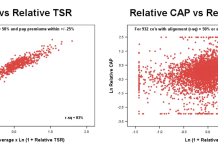According to deVere Group CEO, Cryptocurrency regulation is necessary, on its way, and the vital work being done by many international financial watchdogs and lawmakers must be supported
In the last few days, South Korea’s Finance Supervisory Service (FSS) has signalled the government’s co-operation in plans for self-regulation; the Swiss Financial Market Supervisory Authority (FINMA) has announced it is to treat some cryptocurrency offerings as securities; the Securities and Exchange Commission of Zambia has issued a public notice on cryptocurrencies; and Spain is reportedly drafting legislation that will help attract cryptocurrency and blockchain companies to the country.
Nigel Green, the founder and CEO of deVere Group observes: “Governments and financial regulators around the world are increasingly focusing their attention on cryptocurrencies. Their vital work to warn investors of potential risks, to crackdown on criminal activity, and to potentially establish regulations must be championed.
“Since the launch of Bitcoin in 2009, digital currencies have been operating in a regulatory vacuum. However, I hope and believe that this is soon to change as international financial watchdogs respond to the growing interest in, and popularity of, cryptocurrencies.
“To my mind, there is no question that regulation is necessary and is on its way. It is clearly an area in which there is an enormous need for a robust international regulatory framework and strict ongoing supervision.”
He continues: “One of the best ways to address the regulatory issues is via the exchanges.
“Nearly all foreign exchange transactions go through banks or currency houses and this is what needs to happen with cryptocurrencies. When flows run through regulated exchanges, it will be much easier to tackle potential wrongdoing, such as money laundering, and make sure tax is paid.
“For this to happen, banks will need to open accounts for exchanges, which is why they must be regulated.”
Mr Green concludes: “Robust regulation that is devised, implemented and enforced by international financial regulators will mean further protection for the growing number of people using cryptocurrencies, the less likely it will be that criminals will use these digital payment methods, the less potential risk there will be for the disruption of global financial stability, and the more potential opportunities there will be for higher economic growth and activity in those countries which introduce it.”











